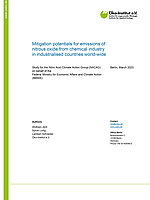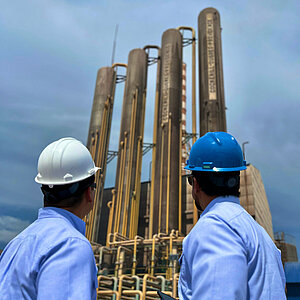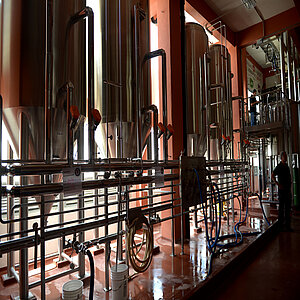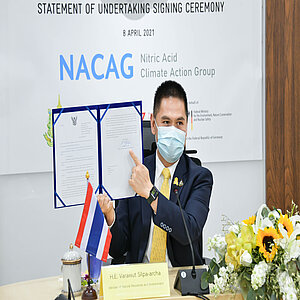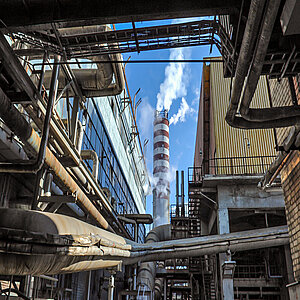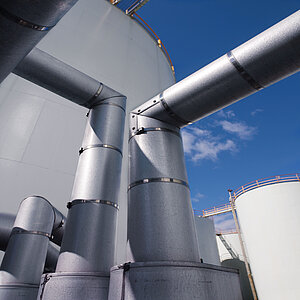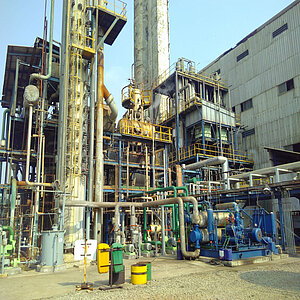Globally committed against industrial laughing gas emissions
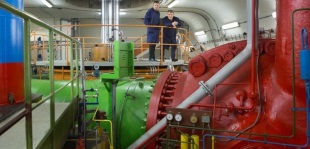
The production of nitric acid has enormous potential for reducing greenhouse gas emissions – up to 800 million tonnes between 2021 and 2030. The Nitric Acid Climate Action Group intends to exploit this potential.
The Nitric Acid Climate Action Group (NACAG) works on four continents and in over 20 countries with partner governments and factory operators to reduce emissions of laughing gas (nitrous oxide, N2O), which is extremely harmful to the climate. The Action Group is targeting a very specific industrial sector – nitric acid production. Laughing gas is 265 times more harmful to the climate than carbon dioxide (CO2). It is emitted during the production of nitric acid, which is mainly used in the production of artificial fertilisers. Emissions can be greatly reduced, however, by installing catalytic converters in the manufacturing plants – with relatively little effort and at a moderate cost.
The goal of the NACAG is to make the global production of nitric acid climate-friendly by reducing nitrous oxide emissions to a minimum all over the world. The potential for reduction in the nitric acid sector is great; the global estimate for the period from 2021 to 2030 is 600 to 800 million tonnes of CO2 equivalent. In a country like India alone, where 16 nitric acid plants are in operation, the annual savings potential is around 2.5 million tonnes of CO2 equivalent (cf. Schneider, L. and Cames, M., 2014, Options for continuing GHG abatement from CDM and JI industrial gas projects).
The Federal Environment Ministry launched the NACAG in 2015 at the COP21 in Paris. The declared goal of the initiative is to install technology that reduces nitrous oxide emissions in as many nitric acid production plants as possible in the near future. To achieve this goal, the NACAG provides technical advice and financing to developing and emerging countries. The NACAG is funded by the International Climate Initiative and implemented by the Deutsche Gesellschaft für Internationale Zusammenarbeit (GIZ) GmbH and the World Bank.
The NACAG Secretariat, based in Berlin and operated by GIZ, cooperates closely with the governments and the private sector of the partner countries. It supports partner countries in their climate protection efforts by providing policy advice and technological consulting services. Argentina, Mexico, Bosnia-Herzegovina, Jordan and Tunisia are particularly interested in cooperating with the initiative and have already signed the ‘NACAG Declaration’. Their signatures confirm that they support the goals of the Action Group. NACAG also cooperates with numerous other countries: In recent months, the Secretariat has organised several workshops in countries such as Egypt, Colombia, Algeria, Indonesia, Zimbabwe, Zambia, South Africa, Thailand, Viet Nam and Cuba. Technical feasibility studies have also been recently carried out in Zimbabwe and Thailand, for example, and policy options studies have been carried out in Colombia and Mexico. The NACAG also advises many partner countries on the integration of the nitric acid sector into their nationally-determined contributions (NDCs) for climate protection.
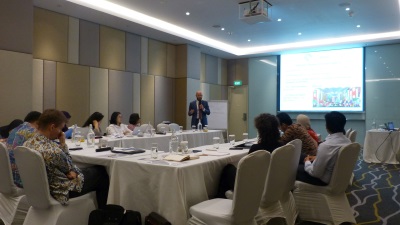 In addition to technical cooperation, the NACAG also operates two financing programmes: The NACAG Grant Facility, implemented by GIZ and the Nitric Acid Climate Auctions Programme by the World Bank. Grants are awarded within the framework of the NACAG Grant Facility financing programme (managed by GIZ) and financing contracts are concluded with plant operators in partner countries for this purpose. This form of pre-financing covers all the costs for the purchase and installation of the laughing gas abatement technology. The costs involved in monitoring the emissions are also covered. Depending on the type of technology, the total amounts involved are in the single-digit millions.
In addition to technical cooperation, the NACAG also operates two financing programmes: The NACAG Grant Facility, implemented by GIZ and the Nitric Acid Climate Auctions Programme by the World Bank. Grants are awarded within the framework of the NACAG Grant Facility financing programme (managed by GIZ) and financing contracts are concluded with plant operators in partner countries for this purpose. This form of pre-financing covers all the costs for the purchase and installation of the laughing gas abatement technology. The costs involved in monitoring the emissions are also covered. Depending on the type of technology, the total amounts involved are in the single-digit millions.
Alternatively, plant operators can also participate in the World Bank’s results-based financing programme, the Nitric Acid Climate Auctions Programme, where auction participants can purchase price guarantees for emission reductions. The price is determined at the auction. Auction winners can later sell their proven emission reductions at the fixed price. The factory operators themselves decide which financing model suits them best.
The prerequisite for a partner country to obtain financing through one of the two programmes is a written commitment by its government to ensure that nitrous oxide emissions from the production of nitric acid are permanently reduced – even after German Federal Government financing has ended. The partner governments sign a unilateral ‘Statement of Undertaking’ to this end. Tunisia was the first country to sign the statement, thereby qualifying for NACAG financing. The Tunisian plant operator opted for the Grant Facility option. GIZ then carried out an advance Due Diligence check and is now negotiating a financing agreement with the operator.
Thanks to the IKI-financed nitric acid initiative, the German government provides thus effective climate financing that results in real greenhouse gas reductions, achieves the cross-border movement of international technology and transfers the long-term responsibility for climate protection to the partner countries.
The link has been copied to the clipboard
Contact
IKI Office
Zukunft – Umwelt – Gesellschaft (ZUG) gGmbH
Stresemannstraße 69-71
10963 Berlin




